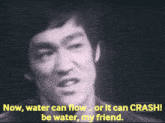There's a lot of charge around the word "weakness", especially with guys. Some people say it isn't a choice, others say it's laziness or apathy, maybe ignorance. Given that a lot of us on this forum practice elaborate and demanding disciplines, I thought some conversation around the idea of mundane psychological weakness would be interesting.

The Seven deadly sins are a snappy, easy-to-remember list of weaknesses. A person feels the pang to eat often, and they give in to the point of 400 pounds (yes, I know some people are obese by no fault of their own), a person feels the pang of rage and they hit a kid, a person desires wealth and pushes their elderly parent down the stairs for inheritance. It's worth noting there are a lot of fat, angry, and violent people in America.
What you're describing here is a lack of impulse control. The root cause of these poor choices is "haste". The remedy is pre-meditation so that in the moment, the individual is ready to react thoughtfully, having pre-considered the positive and negative consequences of the choice that is presenting itself to the individual.
What makes a person strong?
Big picture, there's two types of wise choices, two types of intellectual "strength" in the face of two types temptations. One type of strength is single focused. This is the strength of a parent who is charging into a burning building to save their children. Single focused. One motive. Save their lives. Nothing else matters. ( ... like the gom gabbar test from Dune. ) The temptation which produces the negative outcome, here, is to wait for the firefighters to arrive. The individual would need to silence all the other motivating influences in their heart-and-mind in order to take action ( or tolerate the discomfort ). The other type of strength comes from blending motives and compromise ( ... the reed submits to the wind, and prospers, becoming a wall against the wind, and triumphs. ) The temptation here is to make a rapid choice based on a single motive ( standing proud against the wind ) rather than balancing competing notions and accepting a short term loss for long term gains.
What makes people give in? Is it weakness? Is it their fault, can they be blamed? What makes a person strong? Does morality equate to strength? Does strength create the space for morality to come in, or is strength impossible without morality?
It depends of course.
In particular, in regard to impulse control and the examples you brought, the strength you are referring to is the confluence of conviction and pain-tolerance. These are both in-born human qualities of the personality, and/or, they can be cultivated.
In general, making wise choices requires knowing oneself and understanding one's surroundings, particularly the consequences of one's actions. Developing ( or thoughtfully adopting ) a moral code facilitates knowing oneself, and pre-meditating on the possible outcomes of difficult choices so that one can make a decision rapidly in the moment which conforms to the individual's desires. Lacking this, an individual can be either paralyzed by indecision, or, they will make a choice whose outcome doesn't conform to their desires.
However, wise choices are not always "thoughtful". Sometimes it's important to react and follow impulses in the form of seizing opportunity or taking immediate action in the face of a crisis before the conscious mind has fully wrapped itself around the circumstances and considered the options. The subconcious mind and the feelings ( understanding ) of the heart are much faster to respond than the concsious mind which is "making sense" of the sensory feedback it is receiving and processing. Making many good choices sometimes requires skipping over the concsious mind's desire for knowing and understanding in spite of the risks.
Where people seem to get into trouble is when they consistently follow their impulses when they would be better served with thoughtful consideration of the consequences, and/or, when they consistently ignore their impulses when they would be better served by listening to them.

